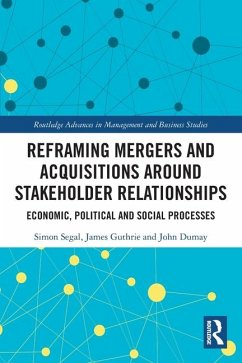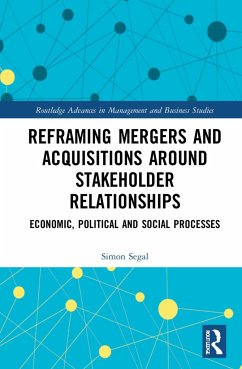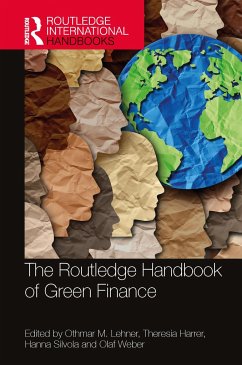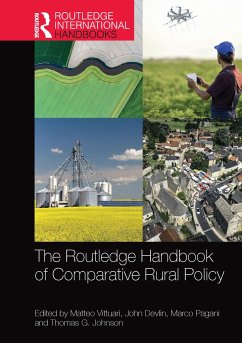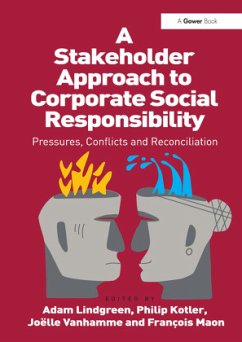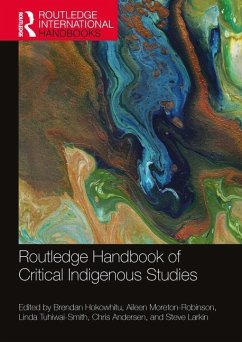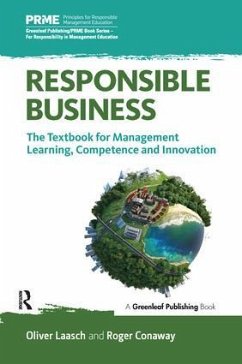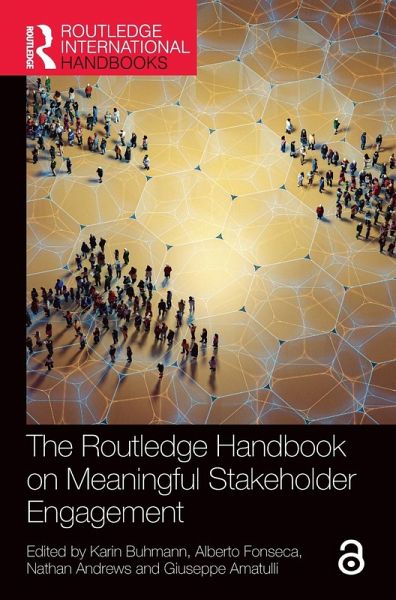
The Routledge Handbook on Meaningful Stakeholder Engagement
Versandkostenfrei!
Versandfertig in 6-10 Tagen
230,99 €
inkl. MwSt.

PAYBACK Punkte
115 °P sammeln!
Meaningful Stakeholder Engagement (MSE) is both a concept and a management approach, drawing on a combination of theoretical and applied knowledge areas (e.g., impact assessment, business and human rights, and stakeholder theory). MSE has become a key element of corporate sustainability risk-based due diligence as a process that responsible business enterprises are expected to apply to identify and manage harmful impacts on the environment and society.Despite the obvious and growing relevance of meaningful stakeholder engagement, few publications have tried to synthesize the knowledge, academi...
Meaningful Stakeholder Engagement (MSE) is both a concept and a management approach, drawing on a combination of theoretical and applied knowledge areas (e.g., impact assessment, business and human rights, and stakeholder theory). MSE has become a key element of corporate sustainability risk-based due diligence as a process that responsible business enterprises are expected to apply to identify and manage harmful impacts on the environment and society.
Despite the obvious and growing relevance of meaningful stakeholder engagement, few publications have tried to synthesize the knowledge, academic literature, and practical experience within and around the concept and practices. This volume responds to that knowledge gap through the provision of comprehensive interdisciplinary perspectives. Embodying a rights-holder orientation, The Routledge Handbook on Meaningful Stakeholder Engagement emphasizes the importance of MSE for stakeholders who are or can be affected by activities driven by external actors, such as natural resource extraction or processing; infrastructure; development proposals, planning and implementation; and production for industry or consumption.
This handbook offers four thematic sections, all interdisciplinary in character, seeking to explore the multiple aspects of MSE. Moreover, a comprehensive introductory chapter explains key elements of the concept and causes for the current surge in expectations of MSE, including a rise in demands of risk-based due diligence. More than 40 international contributors combine theory and practice in chapters that discuss and elaborate the theory and practice of MSE. Uniquely, each section includes short practice notes based on experiences or dilemmas lived by practitioners or affected people, placing real-life situations into theoretical context. The concluding chapter draws up key insights from the chapters and practice notes, and casts a path for the future of MSE integrating values, norms, and practice.
Cutting across multiple disciplines including stakeholder theory, natural resource management, impact assessment, project management, ESG, responsible business, and global value chains, The Routledge Handbook on Meaningful Stakeholder Engagement will be an essential resource for scholars, researchers, developers, investors, affected people, civil society organizations, students, and others.
The Open Access version of this book, available at http://www.taylorfrancis.com, has been made available under a Creative Commons Attribution-Non Commercial-No Derivatives (CC-BY-NC-ND) 4.0 license.
Despite the obvious and growing relevance of meaningful stakeholder engagement, few publications have tried to synthesize the knowledge, academic literature, and practical experience within and around the concept and practices. This volume responds to that knowledge gap through the provision of comprehensive interdisciplinary perspectives. Embodying a rights-holder orientation, The Routledge Handbook on Meaningful Stakeholder Engagement emphasizes the importance of MSE for stakeholders who are or can be affected by activities driven by external actors, such as natural resource extraction or processing; infrastructure; development proposals, planning and implementation; and production for industry or consumption.
This handbook offers four thematic sections, all interdisciplinary in character, seeking to explore the multiple aspects of MSE. Moreover, a comprehensive introductory chapter explains key elements of the concept and causes for the current surge in expectations of MSE, including a rise in demands of risk-based due diligence. More than 40 international contributors combine theory and practice in chapters that discuss and elaborate the theory and practice of MSE. Uniquely, each section includes short practice notes based on experiences or dilemmas lived by practitioners or affected people, placing real-life situations into theoretical context. The concluding chapter draws up key insights from the chapters and practice notes, and casts a path for the future of MSE integrating values, norms, and practice.
Cutting across multiple disciplines including stakeholder theory, natural resource management, impact assessment, project management, ESG, responsible business, and global value chains, The Routledge Handbook on Meaningful Stakeholder Engagement will be an essential resource for scholars, researchers, developers, investors, affected people, civil society organizations, students, and others.
The Open Access version of this book, available at http://www.taylorfrancis.com, has been made available under a Creative Commons Attribution-Non Commercial-No Derivatives (CC-BY-NC-ND) 4.0 license.



